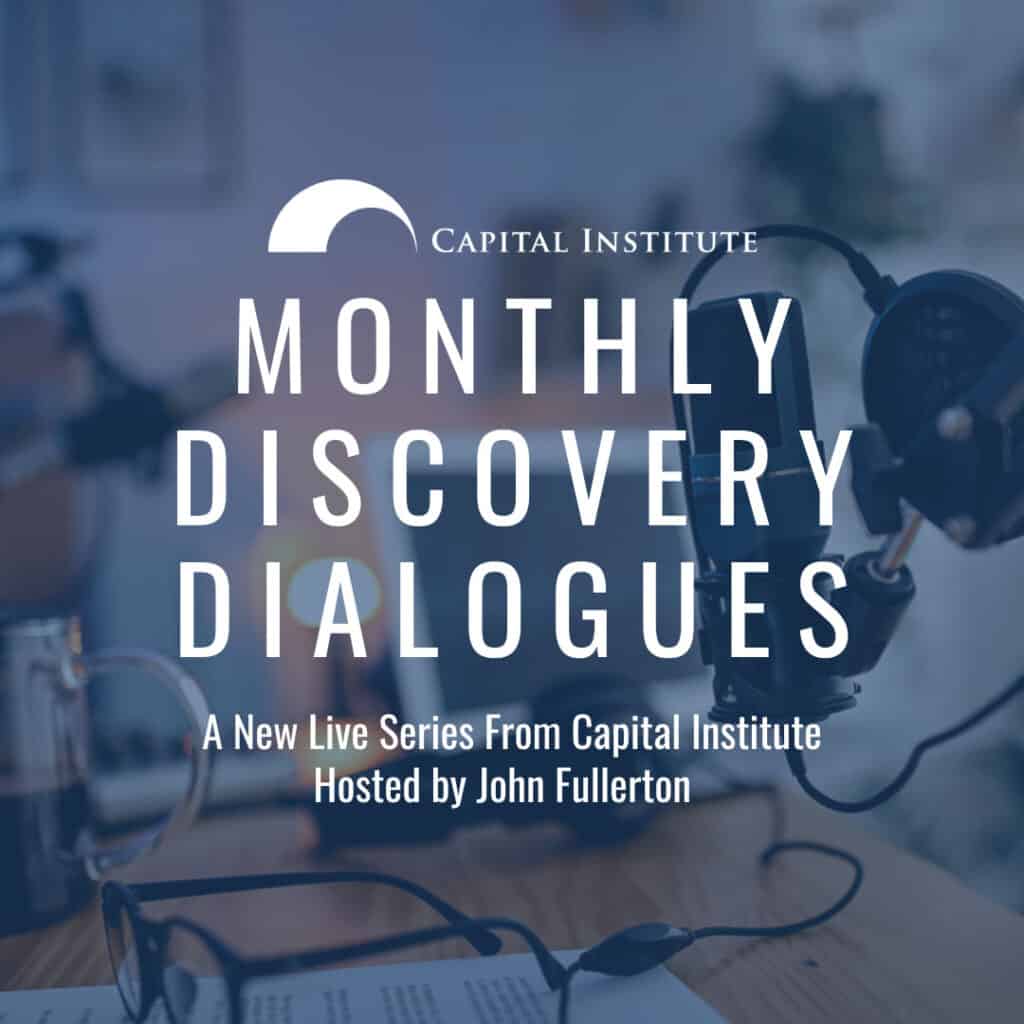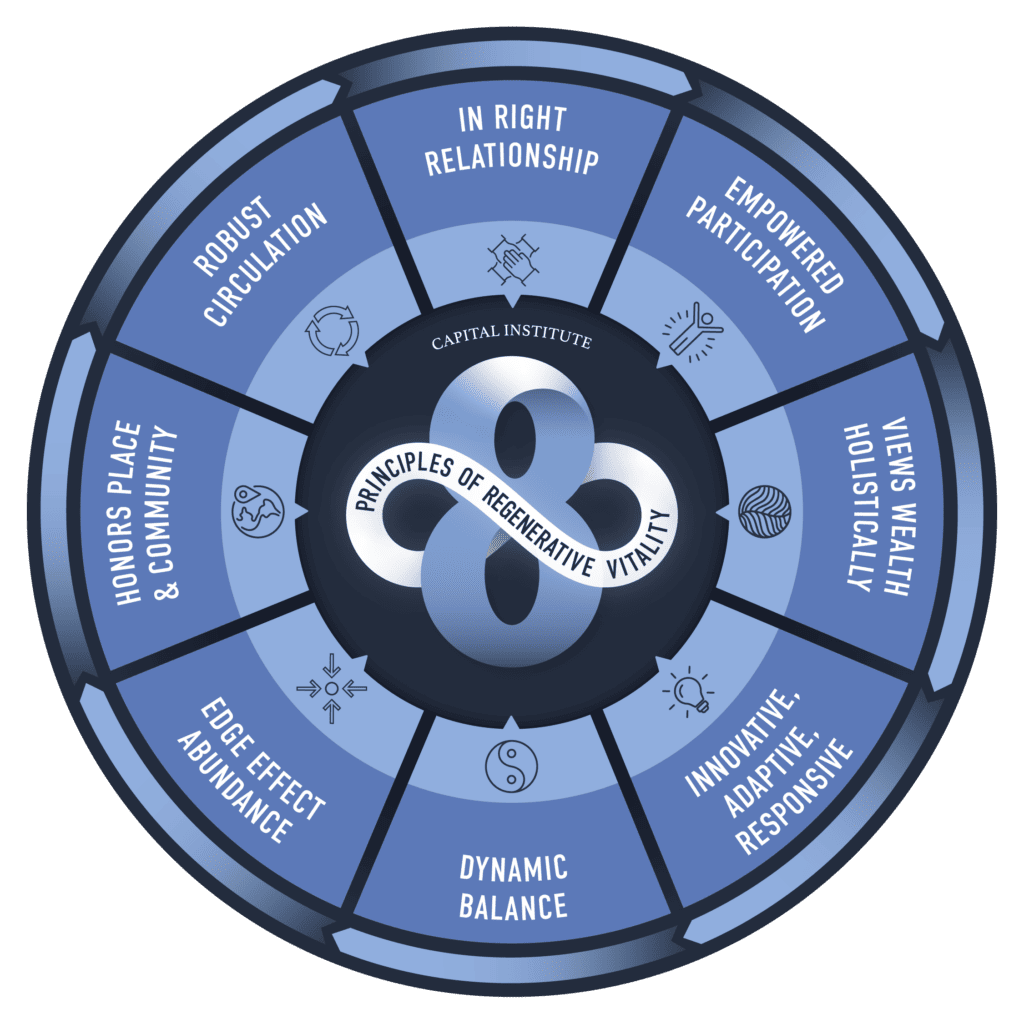Today’s greatest challenge is to address the root cause of our systemic crises – today’s dominant (neoliberal) economic paradigm and the financial system that fuels it and rules it – by transitioning to a more effective economic system design that is regenerative and therefore sustainable over the long term.
The universal patterns and principles nature uses to build stable, healthy, and sustainable systems throughout the real world can and must be used as a model for a new design of our economic system and the financial system that fuels it.







